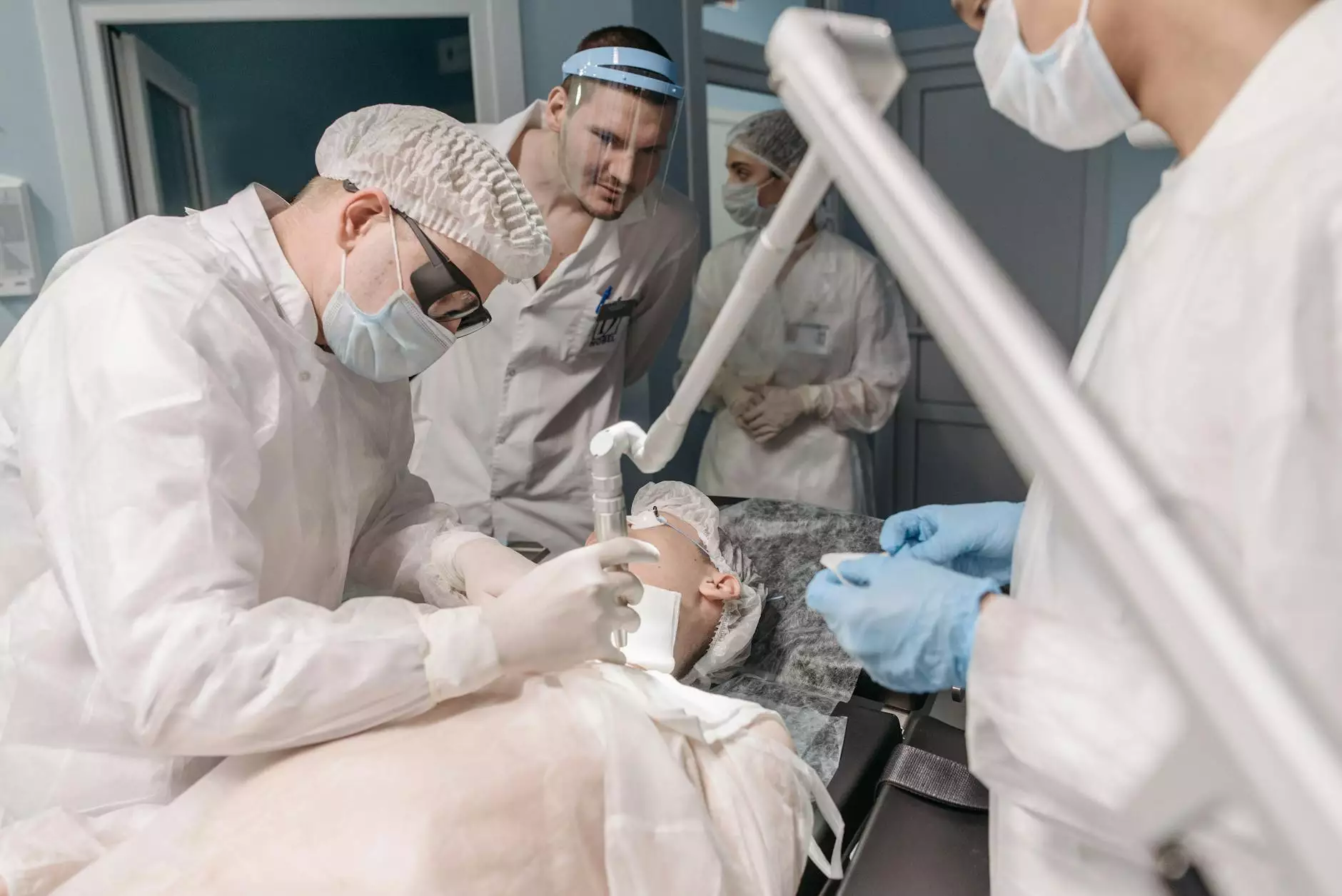Understanding Chest Surgery: A Comprehensive Overview

Chest surgery refers to a range of surgical procedures that are performed on organs within the chest cavity, primarily the lungs and the heart. This specialty encompasses various surgical techniques aimed at treating diseases, injuries, or deformities affecting the thoracic organs. At Neumark Surgery, we are dedicated to delivering exceptional outcomes through expert care in this vital area of health.
The Importance of Chest Surgery
Chest surgery is not merely a procedure; it serves as a gateway to improved health and quality of life for many patients. Whether it's addressing conditions like lung cancer, pneumonia, or congenital heart defects, such surgeries can significantly impact patient survival and well-being. The advancement of technology and surgical techniques has made procedures safer, more effective, and tailored to individual needs.
Types of Chest Surgery
There are several types of chest surgery that vary based on the underlying medical condition. Each surgical approach is designed to meet specific diagnostic and therapeutic needs. Below is a comprehensive list of the most common types of chest surgery:
- Lobectomy: Removal of a lobe of the lung to treat lung cancer or severe infections.
- Pneumonectomy: Removal of an entire lung, often due to malignant tumors.
- Thoracotomy: A surgical procedure involving an incision into the chest wall to access the lungs or heart.
- Sternotomy: Opening the sternum to reach the heart or major blood vessels.
- Video-Assisted Thoracoscopic Surgery (VATS): A minimally invasive approach using a small camera and instruments to perform surgery through small incisions.
- Heart Surgery: A variety of procedures focused on correcting issues with heart valves, arteries, or chambers.
- Chest Wall Reconstruction: Rebuilding or repairing the chest wall due to trauma or surgical resection.
When Is Chest Surgery Necessary?
Understanding when chest surgery is necessary can help patients and their families make informed decisions about health care. The following are some common indications:
- Cancers: Advanced lung cancer or metastases often require surgical intervention.
- Infections: Severe lung infections that do not respond to antibiotics may necessitate surgery.
- Trauma: Injuries to the chest from accidents or falls can lead to internal damage requiring surgical repair.
- Congenital Anomalies: Conditions present at birth may require surgical correction for optimal health.
Preoperative Considerations
Before undergoing chest surgery, patients must engage in a comprehensive preoperative evaluation. This prepares both the patient and the surgical team for a successful procedure. Key considerations include:
- Medical History: A thorough review of the patient's medical history, including previous surgeries and existing health conditions.
- Physical Examination: A detailed examination to assess the patient's current health status.
- Diagnostic Tests: Imaging tests like X-rays, CT scans, and lung function tests to determine the extent of the disease.
- Medication Review: Evaluating current medications and potential interactions with anesthesia.
- Consultation: Discussion with the surgical team about the procedure, risks, and expected outcomes.
What to Expect During Chest Surgery
Knowing what to expect can help reduce anxiety around chest surgery. Here are the crucial steps often involved:
- Anesthesia: Patients will receive anesthesia to ensure comfort and reduce pain throughout the procedure.
- Incision: Depending on the type of surgery, a specific incision will be made in the chest area.
- Procedure: The surgeon carries out the necessary intervention, whether removing tissue or repairing structures.
- Closure: After the surgery, the incision will be carefully closed, typically with sutures or staples.
- Recovery: Patients may be monitored in a recovery room before being transferred to their hospital room.
Postoperative Care and Recovery
The period following chest surgery is crucial for recovery. Proper postoperative care can enhance healing and reduce complications. Here are key points regarding postoperative care:
- Pain Management: Managing pain effectively is essential for a smooth recovery. Patients will be provided with medications as necessary.
- Respiratory Therapy: Breathing exercises and therapies may be initiated to enhance lung function and prevent complications like pneumonia.
- Wound Care: Care for the surgical site is critical. Patients should monitor for any signs of infection.
- Follow-Up Appointments: Regular follow-ups with the surgeon are necessary to assess recovery progress.
- Gradual Return to Activities: Patients are encouraged to gradually return to their normal activities while listening to their bodies.
The Role of Neumark Surgery in Chest Surgery
At Neumark Surgery, we pride ourselves on our compassionate patient care and state-of-the-art technological support in performing chest surgery. Our team of skilled surgeons is committed to:
- Expertise: Providing specialized knowledge and proficiency in various chest surgical procedures.
- Personalized Care: Developing tailored treatment plans that meet the unique needs of each patient.
- Innovation: Utilization of the latest advancements in surgical technology for enhanced accuracy and reduced recovery times.
- Support: Offering continuous support throughout the surgical process and recovery phase.
Conclusion
Chest surgery can be life-changing, offering solutions to severe health conditions that affect the vital organs of the thoracic cavity. With the right team, the proper interventions, and comprehensive postoperative care, patients can look forward to significant improvements in their quality of life. At Neumark Surgery, we are here to provide the highest level of care and expertise in chest surgery, ensuring that our patients achieve the best possible outcomes.
For more detailed information on chest surgery and our services or to schedule a consultation, please visit our website at neumarksurgery.com.









